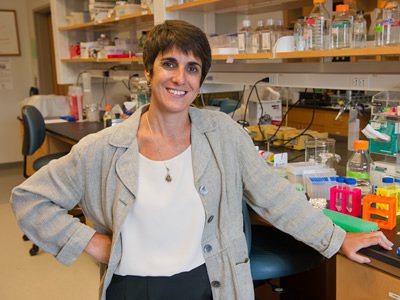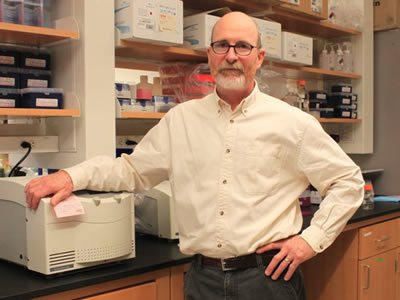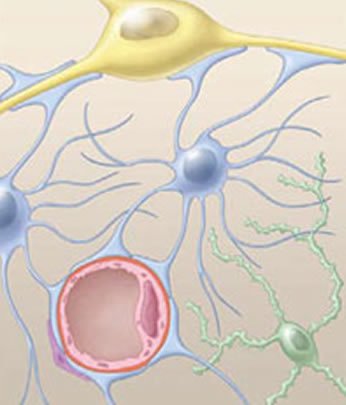Biologists Awarded NIH Grant to Study Origins of Brain Disorders
Sandra and James Hewett will explore physiological mechanisms governing excitatory, inhibitory balance in brain

Neuroscientists in the Department of Biology in the College of Arts and Sciences (A&S) are using a major grant to study the origins of brain disorders, including epilepsy and stroke.
Sandra Hewett, the Beverly Petterson Bishop Professor of Neuroscience and professor of biology, is the principal investigator of a five-year, $1.7 million grant award from the National Institutes of Health’s National Institute of Neurological Disorders and Stroke.
Hewett will use the award to research the physiological mechanisms governing excitatory and inhibitory (E/I) balance in the brain. Her project is part of a larger, nationwide effort targeting and treating E/I imbalances in neurological disorders.
Central to Hewett’s study are neurotransmitters, chemical messengers that send information from one nerve cell (or neuron) to another. Neurotransmitters are excitatory or inhibitory, but work together to affect a variety of physiological functions.
“A brain disorder is the result of an imbalance between these neurotransmitters,” says Hewett, who primarily studies the causes of cell death in the central nervous system. “To develop therapeutic targets for disease states caused by E/I imbalance, we must first understand the cellular and molecular processes that underlie normal, physiological transmission.”
Hewett will focus on the cysteine-glutamate transporter, a protein system that, among other things, maintains glutamate levels in the brain. Glutamate is an excitatory neurotransmitter that enables the brain to function properly.
“Too much excitation [in neurons] can lead to seizures, which are characteristic of epilepsy, or to frank neuronal cell death, which occurs in stroke,” says Hewett, who, as executive director of Neuroscience Studies in A&S, oversees both the Neuroscience Integrated Learning Major and the Neuroscience Graduate Concentration.

She will conduct research with members of her lab and with James Hewett, associate professor of biology and neuroscience, who is the project’s co-investigator.
James explains that the human brain is home to more than 80 billion neurons, each connected to tens of thousands of other cells. “That’s more than a thousand trillion connections in the brain alone,” he continues. “Everything our body does stems from these neurons, which process and transmit information through chemical and electrical signals.”
In addition to billions of neurons, the human brain contains 10 times as many non-neuronal cells called glia. There are different types of glia, including astrocytes, which are star-shaped cells surrounding neurons in the brain and spinal cord.
The Hewetts are interested in how astrocytes create finely controlled environments for complex operations to occur. They suspect changes in the astrocytic system (known as system x
c
-
) affect E/I balance.

“We hope to reveal how system x
c
-
affects homeostasis in the brain,” Sandra says. “Our team will test the hypothesis that the chronic loss of the cystine-glutamate transporter leads to a scaling up of glutamate receptors under basal conditions, whereas scaling down occurs under conditions of enhanced neuronal activity—both in attempt to stabilize neuronal firing. To do this, we will use state-of-the-art in vivo sensor technology, along with various cellular, molecular and pharmacological approaches.”
Hewett says she looks forward to working with an outstanding team of investigators, whose rigorous, well-planned approach already has produced exciting preliminary findings.
“Our results will contribute to a better understanding of the role of astrocytes in the maintenance of I/E balance, thus elevating the study of synaptic imbalance,” she adds.
Featured
Sandra Hewett Beverly Petterson Bishop Professor Emerita of Neuroscience and Professor of Biology
James Hewett Associate Professor
